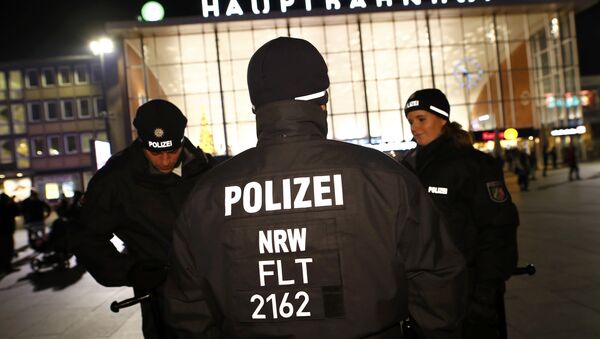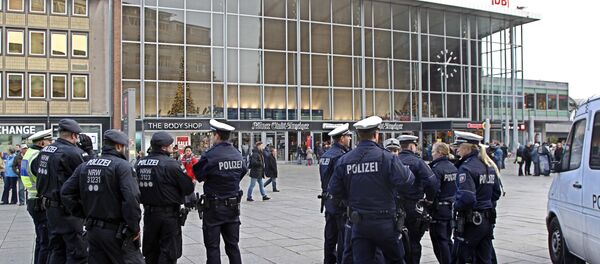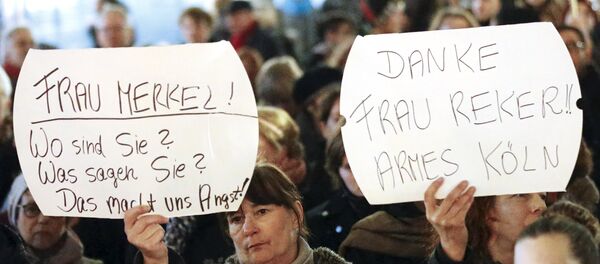That evening, the state police of North Rhine-Westphalia tweeted that hundreds of “nafris” (North Africans) had been screened at the main railway station of Cologne, the state's largest city, where hundreds of women had reported a wave of sexual assaults and robberies during last year's celebrations.
Civil liberties activists and several politicians were quick to criticise the police for engaging in racial profiling in its efforts to prevent a repeat of last year's crime wave.
“This operation clearly used racial profiling,” Alexander Bosch of Amnesty International told the newspaper Rheinische Post.
Speaking to the same newspaper, Green Party leader Simone Peter initially questioned the legality of the police operation, but later backtracked after the police operation won praise for preventing a repeat of last year's crime wave.
“It is clear that the police acted quickly and prudently to prevent pre-arranged groups from carrying out renewed outbreaks of violence,” Peter wrote on her Facebook page, but renewed criticism of the police use of the term “Nafri.”
#PolizeiNRW #Silvester2016 #SicherInKöln: Hundreds of Nafris screened at main railway station. Details follow. https://t.co/VYMQuT6B7u pic.twitter.com/LWrtAXAouq
— Polizei NRW K (@polizei_nrw_k) 31 декабря 2016 г.
Criticism of the police operation as racial profiling is “an absurd and almost crazy debate,” SPD leader Sigmar Gabriel told Funke Media Group.
“The police haven't done anything apart from describe reality with their profile of Nafri/North Africans,” Gabriel said.
Deputy Chairman of Angela Merkel's CDU party in the German Bundestag Stephan Harbarth said that the police had taken the necessary precautions to prevent a repeat of last year's attacks, and called on Bundestag deputies to pass legislation in the coming months to declare the Maghreb countries safe countries of origin.
“Would the Greens prefer that the police leave these groups and instead control grandparents traveling with their grandchildren? This contradicts every life experience,” Harbarth told the Rheinische Post.
99% d Täter v #Köln waren #Nafri. Wenn die #Polizei diese Gruppe #Silvester2016 verschärft kontrolliert ist das #Rassismus? Kommt mal klar!
— darksideoftheegg (@darksideoftheeg) 1 января 2017 г.
“99% of the perpetrators in Cologne were Nafri. When the police strictly controls these groups during New Year's Eve 2016 it's racism? Get real,“ this Twitter user wrote.
On Monday, Cologne's Police Chief Jurgen Mathies rejected accusations of racism and told journalists that if the police hadn't acted, it is likely there would have been a repeat of last year's crime wave.
“We looked very carefully at the way people were behaving that day, before the controls were carried out,” Mathies said, as reported by Sputnik Deutschland.
“I was at the train station myself, and I can say that if we hadn't been so strict, similar events to what happened in 2016 would have been quite realistic.”
Mathies added that the police remain concerned by the arrival of hundreds of young men from North Africa at Cologne railway station on the evening of December 31, and had been monitoring the social networks in an effort to prepare for the movement of people that night.
“At the moment, however, we still don't have the intelligence to explain this phenomenon,” Mathies said.
A police spokesman said that 2,000 young men had been detected arriving at Cologne's main station and 800 young men had been detected arriving in Dusseldorf, the state capital of North Rhine-Westphalia. State police then investigated a further 650 individuals, 98 percent of whom were of North African descent.
“We wanted to prevent a situation like 2015,” the spokesman said.
On New Year's Eve 2015, more than 1,000 young men of North African and Arab appearance gathered in smaller gangs around the main train station in Cologne and carried out a wave of sex attacks and robberies, directed against women. According to the Cologne prosecutor's office, more than 1,200 people were victims of crime during the event in the city last year, including 648 victims of sexual assault.
In October it was reported that 22 defendants are facing trial for their part in the crimes: ten Algerians, nine Moroccans, one Iraqi, one Libyan and one Tunisian. So far just six perpetrators have been convicted. One received a 480 euro ($498) fine and the others received prison sentences, mostly suspended, ranging between six months and one year and nine months, Die Welt reported.
Similar outbreaks of criminality were recorded last New Year's Eve in other German cities, including Hamburg and Bielefeld, and police there also took extra measures to ensure safety this year. According to Germany's Federal Criminal Office, 1,200 women across Germany were sexually assaulted during public celebrations at New Year's Eve last year, and at least 2,000 men were involved in the assaults.




